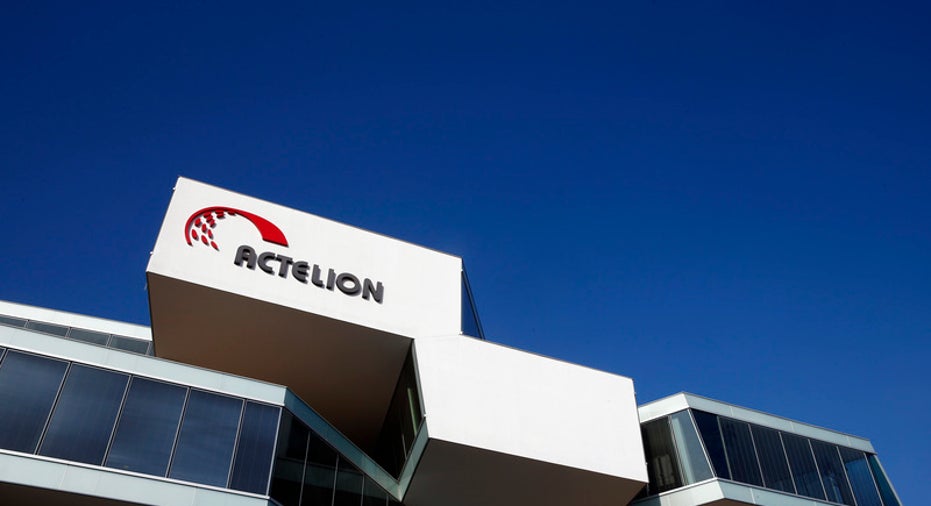Medical couple and butcher's boy win big from Actelion sale

ZURICH – The 70-year-old son of a Swiss butcher is among the biggest beneficiaries of Johnson & Johnson's $30 billion takeover of Actelion, Europe's biggest biotech company.
For Rudolf Maag, whose 5.1 percent Actelion stake is worth more than $1.5 billion, this is the second time in five years that deep-pocketed J&J's craving for Swiss medical companies has made him rich.
Back in 2012, the U.S. healthcare giant bought Maag's 15 percent stake in device maker Synthes Stratec in a takeover, making him a billionaire.
The biggest European pharma deal in 13 years will also enrich Actelion Chief Executive Jean-Paul Clozel and his wife, Martine, the doctors who founded the company in 1997 and owned 5.03 percent of shares, according to the 2015 annual report.
Other winners include BlackRock, which according to a SIX Swiss Exchange filing from December owns 5.2 percent of Actelion, and billionaire U.S. hedge fund manager Dan Och, whose Och-Ziff Capital Management Group amassed nearly 3.2 percent now worth nearly $1 billion in a stake announced before Christmas.
European biotechnology has long been a poor relation to the far bigger industry in the United States, but the Clozels broke the mould in developing a fully fledged and profitable business.
At Actelion they built molecules they first worked on while employees at Swiss drug giant Roche into what became the blockbuster Tracleer for treating deadly pulmonary arterial hypertension (PAH).
With the announcement of J&J's takeover after more than two months of negotiations, other owners of Actelion are cheering, too.
"The structure is very attractive," said Eleanor Taylor Jolidon, a fund manager at Union Bancaire Privee in Geneva, a top-40 Actelion investor.
The relative weakness of Europe's biotechnology sector, despite the region's strong academic science base, has been blamed on factors such as lack of entrepreneurial spirit and inadequate funding.
Under the Clozels' leadership, Actelion overcome those obstacles, with the husband-and-wife team's stubborn determination to market on their own Tracleer and follow-on drugs Opsumit and Uptravi, expected to generate more than $4 billion in combined annual revenue.
Clozel will remain in the biotech game as CEO of the new R&D business that is being spun out of Actelion under the deal. The new company will be listed and is likely to be valued at around 1-2 billion Swiss francs ($1-2 billion), according to analysts at Berenberg.
���� Its operation will include experimental drugs from Actelion's laboratories against a range of conditions, including insomnia, severe hypertension and dangerous narrowing of blood vessels associated with brain hemorrhage.
J&J, which will control up to 32 percent of the new company along with Actelion investors who get a share for each Actelion share, also gets Tracleer, Opsumit, Uptravi and other drugs already on the market, plus rights to an experimental multiple sclerosis drug and an investigational antibiotic.
'HUGE DEAL'
As CEO, the 61-year-old Jean-Paul Clozel has insisted in the past on the company's independence, fending off a hostile approach in 2011 from U.S.-based activist fund Elliott Advisers which sought to wrest control of the board in order to put Actelion up for sale.
At the time, Maag departed from his traditionally low-profile approach by publicly coming to Clozel's aid, joining those who thought Elliott was low-balling Actelion's value and defending the company's stand-alone strategy.
When the familiar face of J&J, with its lucrative offer, arrived on the scene, however, there was no repeat of the defense.
In an email to Reuters in December, Maag declined comment on Actelion's future and he did not respond to inquiries on Thursday seeking comment on the J&J deal.
While Maag was a longtime investor, billionaire Och's big Actelion stake emerged in December as talk of a sale heated up and a flurry of hedge funds piled into Actelion shares on optimism that J&J's offer would be too big for the Clozels to refuse.
"If I can get a premium, I like to take it," said Urs Beck, fund manager at EFG Asset Management. "It's a huge deal."
(Additional reporting by Silke Koltrowitz in; Zurich and Ben Hirschler in London; editing by Anna Willard)



















